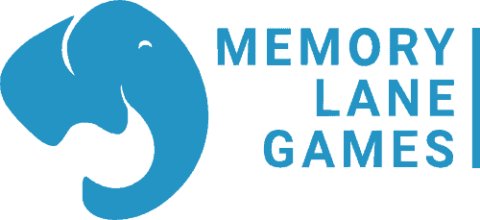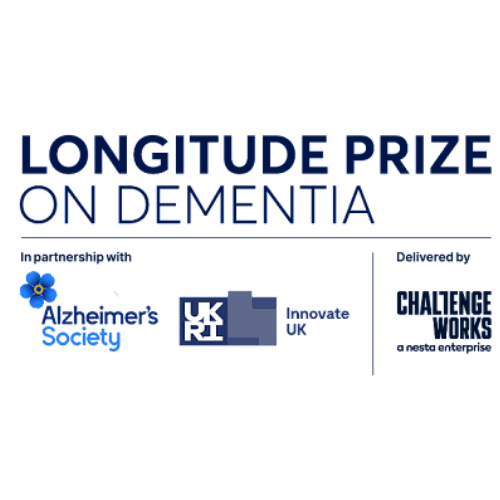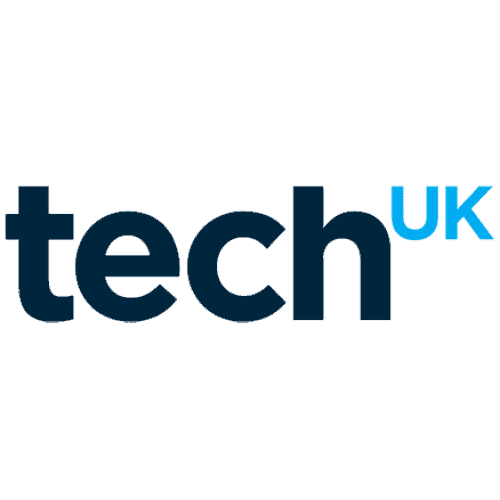- AI-enabled Personalised Digital Reminiscence Platform
- 24 semi-finalists receive £80k grants as part of the overall £4m Longitude Prize on Dementia driving the co-creation of personalised technologies to help people living with dementia enjoy independent and fulfilled lives.
- The Longitude Prize on Dementia is funded by Alzheimer’s Society and Innovate UK and delivered by Challenge Works.
- £1 Million Grand Prize for single project: visit dementia.longitudeprize.org
Memory Lane Games have been named a semi-finalist in the Longitude Prize on Dementia for its AI-enabled personalised digital reminiscence platform. They have been awarded one of 24 Discovery Award grants worth £80k as part of the £4m Longitude Prize on Dementia.
A total of £1.9m has today been awarded to 24 pioneering teams of developers, researchers and innovators from across the globe in the international challenge competition funded by Alzheimer’s Society and Innovate UK, and designed and delivered by Challenge Works. The team will now work alongside people living with dementia and their carers to ensure technologies are intuitive, easy-to-use and able to adapt to their changing needs.
Working with City University London, Memory Lane games aim to improve quality of life for people living at home with dementia (and for their carers), through playing games they can continue to enjoy over time, with a personalised reminiscence platform using co-designed gamification and AI to learn to adapt content/challenge for each individual with dementia, along with remote-monitoring to track changes in cognitive performance and potentially changes in health.
Bruce Elliott, CEO & Co-Founder of Memory Lane Games, said: “Our app already makes a difference to people living with dementia and their carers and with our proposed adaptive AI models, co-designed to be accessible and fun, we will learn to deliver continued engagement, critical to adoption and ongoing use, in order to foster reminiscence and positive socialisation. Ultimately we will improve and extend the quality of life for people living at home with dementia, addressing their daily communications and social interaction needs with activities they can enjoy playing for years, promoting a sense of self, achievement and cognitive resilience.”
Project lead at City University London, Dr Chris Child, says: “We are pleased to be working alongside Memory Lane Games on technology which will reduce carer burden – shown to be a key trigger for entry into care for people with dementia. The co-design focus of the collaboration will be led by Professor Stephanie Wilson, Co-Director of City’s Centre for Human-Computer Interaction Design, with expertise in user experience design and co-design with people with disabilities.
Memory Lane Games are committed to co-design, seeking to include people with dementia and their carers, families and clinicians. They have worked directly with Speech and Language Therapists (UK, US, Philippines); Alzheimer’s Disease Associations in the UK, Philippines, Uganda, Zambia and Greece for extensive user testing, co-design and content co-creation from people with dementia, families, memory cafe nurses, carers, neurologists and clinicians; and Dementia care groups.”
Kate Lee, CEO, Alzheimer’s Society, said: “It’s vital people with dementia are able to live independently, doing things that bring them fulfilment, for as long as possible. And that’s exactly what tech innovation can provide. Today’s Discovery Award winners all have the capacity to develop cutting-edge tools that bring hope to the here and now, making a tangible difference to people’s lives. New drugs have been discovered which slow the progression of early Alzheimer’s disease, but there’s still more to do. Alzheimer’s Society remains committed to innovative projects like the Longitude Prize so that together we can improve the lives of people living with dementia and their families.”
Indro Mukerjee, CEO, Innovate UK said: “By addressing dementia the Longitude Prize tackles a global health crisis. Worldwide, around 50 million people have dementia and there are nearly 10 million new cases every year. Innovate UK is pleased to support this initiative along with the other vital work we are doing in this area. The UK is a global leader in innovation for healthy ageing and this prize will incentivise new technologies. This will help people with dementia, their families and their carers, to make living with the condition easier”.
The Longitude Prize on Dementia is driving the development of personalised, technology-based tools that are co-created with people living with the early stages of dementia, helping them live independent, more fulfilled lives and enable them to do the things they enjoy.
The competition itself has also been co-designed with people living with dementia. Judges were advised in their decision making by the Lived Experience Advisory Panel (LEAP).
Trevor Salomon, whose wife Yvonne was diagnosed with young-onset Alzheimer’s disease in 2013, is Chair of the Longitude Prize on Dementia’s Lived Experience Advisory Panel. The group – which includes people living with dementia, carers and former carers – has steered the design of the prize, as well as the judging and assessment processes.
Trevor said: “Before her diagnosis, my wife astonished everyone with her ability to do anything she set her mind to. She was an amazing cook, gardener, and there was nothing she couldn’t make or repair on her sewing machine.
“If we could access technologies that help extend her independence and her enjoyment of those pastimes, it would be so worthwhile. So I’m really impressed by the innovative thinking and creativity of the Discovery Award winners. Advances in AI could lead to new technologies that would be transformative for people like my wife – but they need to be easy to use, intuitive and adapt to the unique needs of each person. Technologies shouldn’t be developed in a bubble; they need to be designed and tested by the people who will ultimately benefit from them.”
In 2024, five finalists will progress with additional £1.5m in funding to build real-world prototypes. In total, more than £3 million will be awarded in seed funding and development grants with a £1 million first prize to be awarded in 2026.
In addition, wider expert non-financial support has been funded to provide innovators with crucial insight and expertise in the next three years, such as access to data, specialist facilities, collaborations with people living with dementia and expert advice on technical and business aspects of the innovation and to facilitate knowledge sharing between participants.
One of the Discovery Awards awarded today, the ‘Paul and Nick Harvey Discovery Award’, is sponsored by the Hunter Foundation, with further support coming from Heather Corrie and the Caretech Foundation.
To find out more about the Longitude Prize on Dementia and the 24 Discovery Award winners progressing to the semi-finals of the prize, visit dementia.longitudeprize.org
-ENDS-
Notes to Editors
For media enquiries, please contact Andrew McKay, Alice Jaffe and Sophia Houston at [email protected]
About Memory Lane Games
Memory Lane Games delivers professionally-curated, inclusive reminiscence and speech and language games to assisted living and care environments fully branded, localised, personalised and with robust back office reporting and family engagement capability.
About the Longitude Prize on Dementia
The Longitude Prize on Dementia is a £4 million prize to drive the creation of personalised, technology-based tools that are co-created with people living with the early stages of dementia, helping them live independent, more fulfilled lives and enabling them to do the things they enjoy.
Dementia is a progressive condition and there is no cure, but people can live well for years. As hospitalisations can increase the rate of decline, the hope is that assistive technology can help people stay safe and independent in their home for longer. The winning solution will use the latest advances in technology, artificial intelligence (AI) and machine learning in combination with user data and testing to provide personalised support for people living with dementia.
The Longitude Prize on Dementia is funded by the UK’s Alzheimer’s Society and Innovate UK and delivered by Challenge Works.
- Alzheimer’s Society is the UK’s leading dementia charity. It is a vital source of support and a powerful force for change for everyone affected by dementia.
- Innovate UK is the UK’s innovation agency, helping UK businesses to grow through the development and commercialisation of new products, processes and services, supported by an outstanding innovation ecosystem that is agile, inclusive and easy to navigate.
- One of the Discovery Awards awarded, the ‘Paul and Nick Harvey Discovery Award’ is sponsored by the Hunter Foundation, with further support coming from Heather Corrie and the Caretech Foundation.
- The prize has also received funding from the Medical Research Council. The MRC funds research at the forefront of science to prevent illness, develop therapies and improve human health.
- Challenge Works is a global authority on the design and delivery of challenge prizes to unlock technological solutions focused on social good.
All Discovery Award winners are subject to due diligence and contracting which is being undertaken by Challenge Works.
About City, University of London
City, University of London is the University of business, practice and the professions. City attracts around 20,000 students (over 40 per cent at postgraduate level) from more than 150 countries and staff from over 75 countries. In recent years, City has made significant investments in its academic staff, its infrastructure, and its estate. City’s academic range is broadly-based with world-leading strengths in business; law; health sciences; mathematics; computer science; engineering; social sciences; and the arts including journalism, dance and music. Our research is impactful, engaged and at the frontier of practice. In the last REF (2021) 86 per cent of City research was rated as world leading 4* (40 per cent) and internationally excellent 3* (46 per cent). We are committed to our students and to supporting them to get good jobs. City was one of the biggest improvers in the top half of the table in the Complete University Guide (CUG) 2023 and is 15th in UK for ‘graduate prospects on track’. Over 150,000 former students in 170 countries are members of the City Alumni Network. Our President, Professor Sir Anthony Finkelstein, joined City in June 2021 and under his leadership we are reviewing our strategy and positioning. This will direct the next phase of our development. We envisage that it will entail us making bold choices that reflect our ambitions.























